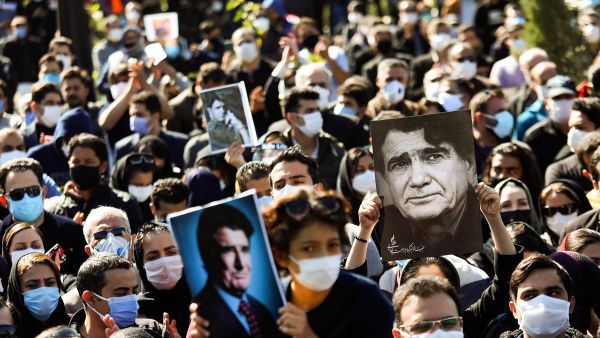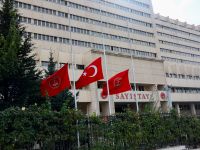By Ruba Hattar
This weekend Iran has mourned classic Persian music icon Mohammad Reza Shajarian, who passed away at the age of 80 due to cancer. Shajarian, who started his life learning how to recite the Quran went on to become a legendary composer, vocalist and master of traditional Persian music, a calligraph and a political activist.
For over half a century, Shajarian embodied classical and traditional music inside and outside Iran and was compared in the Arab world to the Egyptian music icon Um Kalthum. Born on September 23, 1940, At the age of twelve, he began studying the Persian classical repertoire known as the Radif without his father's consent as studying and performing music was against his father's religious beliefs. Maybe that's why he chose the stage name "Siavash Bidakani" in his early career as a singer, which didn't last long and soon he used his real name again, according to Iranian sources.
Shajarian started his singing career in 1959 at Radio Khorasan, rising to prominence in the 1960s with his distinct style of singing. Since then his career has included teaching at Thran University's Department of Fine Arts, working at National Radio and television, researching Persian/Iranian music, and making numerous recordings.
He later lived to become a notional figure in Iran especially in the days of the Shah in the seventies. He had great presence among lovers of music in Iran and became very popular after choosing to compose music for famous Sufi poems of Jalaluddin Al Rumi, Omar Al-Khayyam, Hafez Shirazi and others.
Shajarian's Bidaad album lyrics spoke of a wonderful place having been reduced to shambles and bloodshed, in which he sings in sadness "what happened?" in reference to what have become of the Iranian regime in the aftermath of the revolution aas he later revealed in an interview in the U.S. This is widely considered his first commercial recording meant to represent the voice of an oppressed people in Iran.
Shajarian studied with many Iranian music maters both vocals and playing the Santour instrument and went on to teach many leading Persian singers such as Sharam Nazeri, Iraj Bastmi, Sina Sarlak and his own son and daughter Hamayon Shajarian and Majkan Shajarian.
Shajrian won several international awards and was nominated for others namely; NIRT Golden Cup (1977), Golden Picasso Medal (1999), Grammy award in Best World Music (2004, 2006), Nushin Medal (2008), The UNESCO Mozart Medal (2006), One of NPR's 50 great voices.(2010), French National Order of the Legion of Honour (2014), National Order of Merit (2014), and the Aga Khan Trust for Culture (2019).








